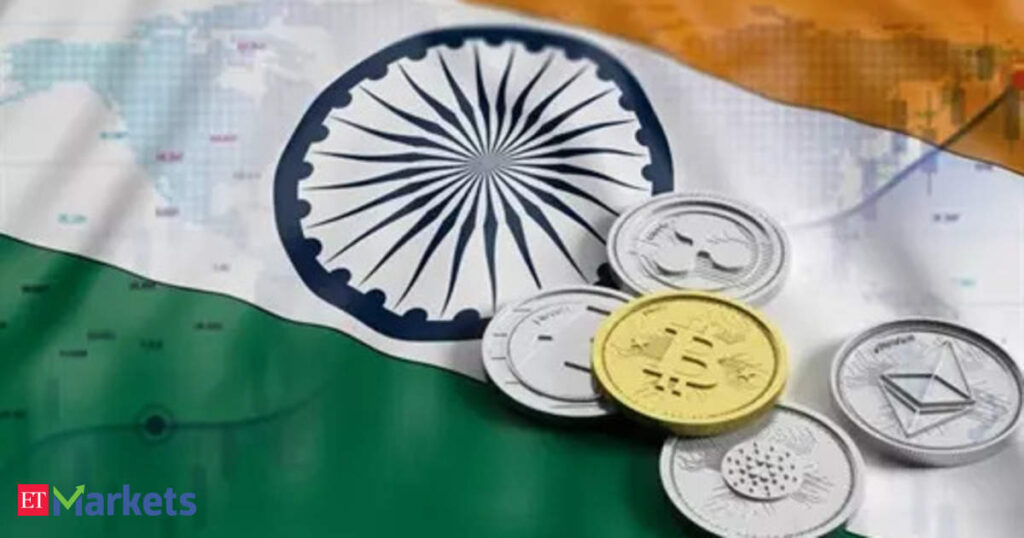Responsible cryptoasset development in India can be achieved through self-regulation

The rise of the crypto asset industry in recent years has been a dynamic and unpredictable journey. While cryptoassets do not yet form a major part of the global financial system, that too is beginning to change and their presence is now indisputable.
However, the borderless nature of crypto assets poses various risks to the global economy due to their unique technological and economic characteristics. Effective regulation in the area of investor protection is crucial for building trust in markets like India, which is at the forefront of global cryptoasset adoption. Similar to other G20 nations, India must balance the need to protect investors with the desire to foster innovation in this rapidly evolving sector.
The Indian government has been navigating the complexities of regulating crypto assets, or Virtual Digital Assets (VDAs) as they are called in India. Initially considering an outright ban, India has since acknowledged the global nature of the crypto asset market and the necessity for a coordinated international response. During its G20 presidency, India has assumed a leadership role in promoting a collaborative global regulatory framework to tackle the cross-jurisdictional challenges posed by VDAs.
Crypto Tracker
A recent paper by the Indian Council for Research on International Economic Relations (ICRIER) on crypto-asset regulatory choices for consumer protection highlights the need for the Indian government to leverage international experience and work towards harmonized global regulation for this asset class. While close industry collaboration is essential for market evolution, it cannot replace robust government oversight.
Key Developments in India’s VDA Regulatory Framework
Taxation of VDAs: India has introduced income tax laws to recognize gains from crypto asset transactions, thereby bringing them within the scope of the Income Tax Act.
Anti-Money Laundering Measures: The Prevention of Money Laundering Act (PMLA) now covers VDA transactions, requiring VDA Service Providers and wallets to conduct customer due diligence and register with the Financial Intelligence Unit, India (FIU-IND).
Regulatory Sandbox: The Reserve Bank of India’s Enabling Framework for Regulatory Sandbox allows for the testing of blockchain technologies, although it currently excludes cryptoassets and related services.
Despite these advancements, a comprehensive regulatory framework for cryptoassets remains elusive. However, the government has indicated a preference for a globally aligned approach. This was highlighted in their Presidency Note during the G20 for the IMF-FSB Synthesis Paper, recommending:
- Establishing a global coordination framework for cryptoasset regulation.
- Developing standards for stablecoins and unbacked cryptoassets.
- Enhancing cross-border payments and addressing financial stability risks.
The Path Forward: Self-Regulation and Global Cooperation
To fully realize the potential of cryptoassets while mitigating risks, India must actively work with its G20 partners to implement these recommendations. Domestically, the government should consider allowing self-regulation among responsible and compliant Indian players, as this could foster innovation while ensuring investor protection. As a first step towards self-regulation, the leading Web3 and VDA industry body – the Bharat Web3 Association (BWA) – of which CoinSwitch is a founding member, has issued two sets of voluntary guidelines – the first one on Consumer Protection and another on Token Listing. More will follow.
Additionally, reconsidering the tax treatment on VDAs in the July 2024 Union Budget will be crucial:
- Reduce TDS Rate on VDAs: Lower the rate of TDS on the transfer of VDAs from 1% to 0.01% under Section 194S to bring the majority of VDA transactions within the tax oversight mechanism, to improve tax compliance, and prevent capital flight.
- Allow Loss Offset: Allow the offset of losses similar to other sectors to encourage responsible trading practices and reduce the risk of tax evasion.
- Re-examine Flat 30% Tax Rate: Re-examine the flat rate of 30% applicable to income from the transfer of VDAs to ensure parity with other tech-enabled sectors.
As the global regulatory landscape for cryptoassets evolves, India’s leadership in this space will be crucial. By striking the right balance between regulation and innovation, India can position itself as a hub for responsible cryptoasset development and contribute to the creation of a more stable and inclusive financial system.
(The article is attributed to R Venkatesh, Senior Vice President- Public Policy, CoinSwitch)
(Disclaimer: Recommendations, suggestions, views and opinions given by the experts are their own. These do not represent the views of the Economic Times)
Source link
#India #achieve #responsible #cryptoasset #development #selfregulation




